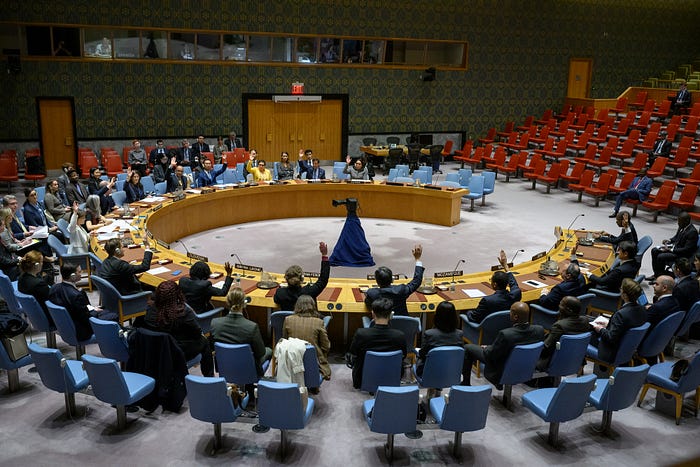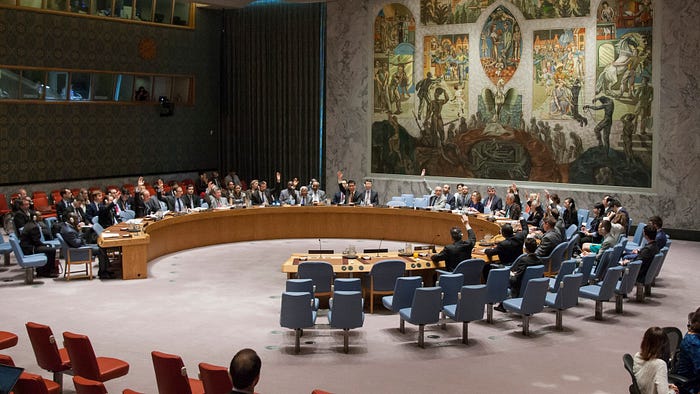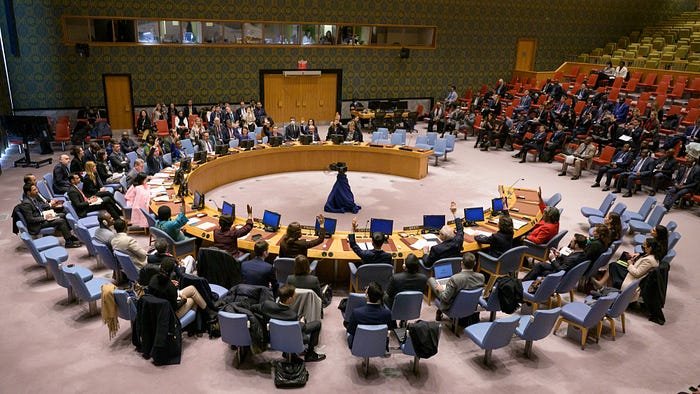
From Haiti and Yemen to Somalia and the Democratic People’s Republic of Korea, the Security Council has used its authority to enact targeted sanctions, including travel bans, asset freezes and arms embargoes, against individuals or entities it deems a threat to international peace and security. These measures are more precise than the comprehensive sanctions imposed on entire nations during the latter part of the 20th century. Sanctions continue to change, largely in response to humanitarian concerns and questions of due process.
Today, there are 14 ongoing sanctions regimes in place. They support political settlement of conflicts in the Central African Republic, Libya, Sudan, South Sudan and Yemen. They aim to prevent escalating violence, insecurity, and criminal activities perpetrated by armed gangs in Haiti. They also seek to deter unconstitutional changes of government in Guinea Bissau. Additionally, they constrain the proliferation activities of the DPRK and the terrorist threats posted by ISIL (D’aesh) & Al-Qaida and Al-Shabaab. The Security Council Affairs Division (SCAD) in the Department of Political and Peacebuilding Affairs (DPPA) is responsible for assisting the Council in the design, implementation and evaluation of these sanctions regimes. Each regime is administered by a sanctions committee chaired by an elected member of the Council. There are currently nine monitoring groups, teams and panels that support the work of 10 of the 14 sanctions committees.
Security Council sanctions can be broadly considered as measures strategically imposed to restrict activities in a wide range of areas, aimed at achieving peace and security objectives. They are not meant to be punitive an end in themselves, but to be part of a comprehensive strategy, working in tandem with political dialogue, mediation, peacekeeping and special political missions to counter terrorism, prevent the spread of nuclear weapons and facilitate political settlements in countries emerging from conflict. The most common sanctions measures are arms embargoes, asset freezes and travel bans while others include commodity bans, maritime interdiction and restrictions on technical assistance.
How sanctions work: coercion, constraint, and signalling
Sanctions are designed to achieve their intended objectives through three primary mechanisms: coercion — imposing economic or political costs on a target to compel a change in behaviour; constraint — limiting an individual or group’s ability to act by restricting access to particular resources; and signaling — sending a clear message that certain behaviour are inappropriate and may lead to further measures.
One oft-cited successful sanctions regime is the Liberia sanctions regime, established by resolution 1521 (2003), in which the Council established a Committee to oversee an arms embargo, travel ban and trade sanctions on Liberia. The sanctions, which included a ban on diamond imports from that country, was lifted by the Council in 2007, in response to the Government’s cooperation with a mechanism set up to keep “conflict diamonds” from reaching world markets. The travel ban and asset freeze measures were lifted in 2015, and the sanctions regime was terminated in 2016.

However, while UN sanctions remain key instruments for maintaining international peace and security, views differ among Member States about their effectiveness. Some view arms embargoes and financial sanctions as essential for curbing violence and enforcing peace deals, while others argue that prolonged sanctions become ineffective and have unintended humanitarian consequences on civilians.
The sanctions landscape today
In response to humanitarian concerns over sanctions, the Council adopted resolution 2664 (2022), which introduced a humanitarian “carve out” to asset freezes across all UN sanctions regimes. Through this “carve out”, the Council ensured that “the provision, processing or payment of funds, other financial assets or economic resources or the provision of goods and services necessary to ensure the timely delivery of humanitarian assistance or to support other activities that support basic human needs” are not violations of UN sanctions. The text noted that this provision applied to all sanctions regimes equally, with the exception of 1267/1989/2253 ISIL (Da’esh) and Al-Qaida sanctions regime, which was initially covered for two years only. It has since been extended indefinitely through resolution 2761 (2024).

Prior to the adoption of resolution 2664, humanitarian organizations had to go through lengthy and often unclear administration processes to ensure compliance with sanctions regimes and to prove that aid gets to those in need without being diverted to sanctioned entities or individuals. The resolution has streamlined the process in most cases.
There have been other important developments in the UN sanctions landscape over the last few years. In October 2022, a new sanctions regime was established on Haiti. The sanctions regime on Mali was discontinued in August 2023 after the Council failed to reach an agreement on its renewal. On 28 March 2024, the Council failed to adopt a resolution that would have extended the mandate of the Panel of Experts assisting the DPRK Sanctions Committee due to a veto cast by the Russian Federation. On 19 July 2024, the Council passed resolution 2744 (2024), which strengthened the mandate of the Focal Point for De-listing by establishing new and improved delisting procedures for all individuals and entities on UN sanctions lists, other than the ISIL (Da’esh) and Al-Qaida Sanctions List which fall under the purview of the Office of the Ombudsperson for the ISIL (Da’esh) & Al-Qaida Sanctions Committee and the ISIL (Da’esh) & Al-Qaida Sanctions Committee itself. The text also established an Informal Working Group on general Security Council sanctions issues. On 30 July 2024, the Council, through resolution 2745 (2024), lifted the arms embargo on the Central African Republic while maintaining restrictions on the supply of arms and military assistance to armed groups. On 29 July of this year, the Council renewed those restrictions.

